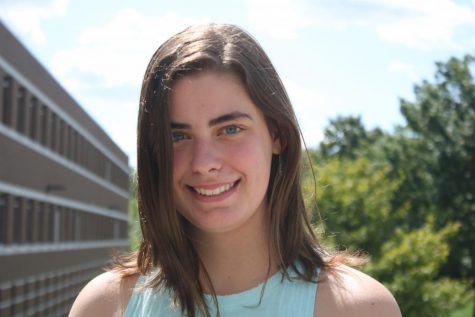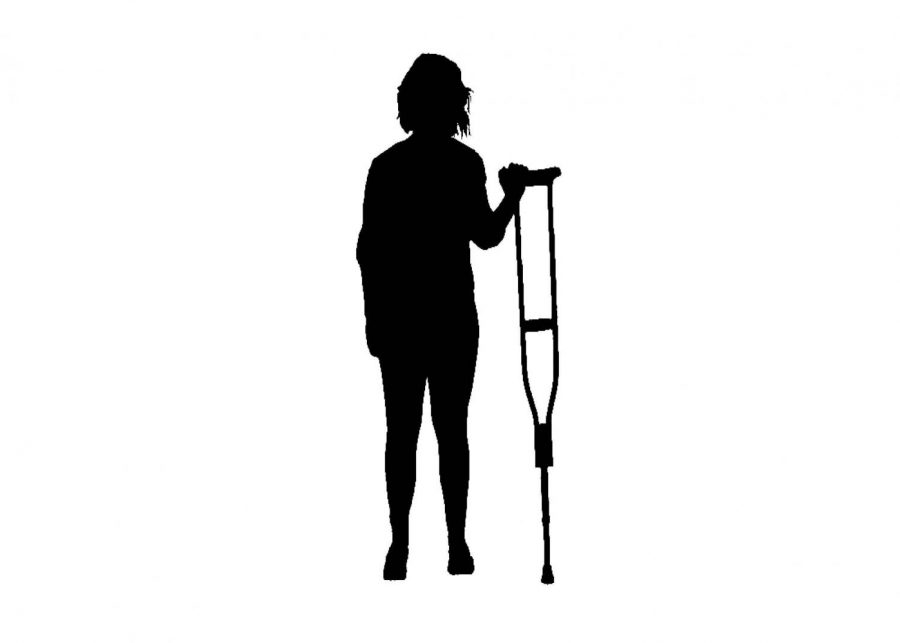The Light at the End
After a long recovery, I reflect on the effects of my surgery, the road to get there and how I adjusted to coming back to school.
It was May when the pain started. I had the whole world in the palm of my hands: I was a point sprinter, competing in the county tournament for long jump and was on the starting line-up for my AAU basketball team. My life was perfect. Until it wasn’t.
I went to three doctors, I had one cortisone shot, an MRI, multiple x-rays and nearly a year of physical therapy. After a year and a half of pain, one chance came that would solve all my problems: Periacetabular Osteotomy surgery, which would cut the bone in my hip and reposition it to cure my condition of hip dysplasia. So, on Nov. 17, I faced my fears and went into surgery.
After a four-day stay at the hospital, filled with terrible reactions to medication and a pessimistic physical therapist who said surgery wasn’t going to work, I had this overwhelming feeling that I was over the hump. I thought that going into surgery would be the hardest part, but boy was I wrong. The surgery was easy compared to the recovery.
I was prepared for the pain. It felt strange to not be in pain. However, the physical pain wasn’t the problem. I thought I had everything under control watching everyone else do the things I couldn’t do, but this was different. This was no longer my choice. It wasn’t like I could go up the stairs for some peace and quiet because by the time I got up 20 minutes later, I wanted a nap. For a long time everything seemed impossible.
I remember lying in bed one night with my left hip in a CPM machine. Its job was to keep my hip constantly moving. After surgery, it was important to keep my hip constantly moving so my hip didn’t become stiff or lose its mobility. I had to pick up my leg and place it in since I was incapable of moving it without aid. The machine itched my left calf, making a constant moaning noise and made it impossible to find a comfortable position. Worst of all, my only view was just the bleak, white ceiling, leaving no choice but to stare at it until my eyes burned; no matter how hard I tried, I could never fall asleep. In a moment of weakness, I just let small salty tears roll down my face. No one was watching. I could let out soft whimpers and no one would know. Life wasn’t improving at the speed that I had hoped.
I went back to school two weeks later. Going back to school was extremely important to me; I wanted to regain some normalcy back into my life. Sitting in that wheelchair, I loathed every second. I was restricted, people stared, but most people just didn’t care that I existed. If I had a penny for every time that I had a door slammed on me or someone ran straight into me, I would be at least $20 richer. Being back did everything but boost my confidence.
After missing two weeks of school, there weren’t just physical challenges when I came back. I did the best that I could during the time I was gone in order to catch up, but it was difficult. I had missed a whole history chapter and multiple concepts in math and chemistry. When I got back it was easy to tell that I was far behind. I had never been so behind in any class before let alone all of them. I soon caught up on all the homework I missed, but homework wasn’t the only thing that I needed. When I was gone, I missed how to do the homework. With hours of stress, I soon got back to normal but, the stress ate away at me. Eventually my post surgery symptoms lead to fatigue and suddenly I had a larger problem on my hands.
I’d never felt so hopeless, but things steadily changed. Slowly, I was able to move my left leg and hip without the aid of my arms. I was able to put on leggings or jeans without causing additional pain. After all that work with my exercises, they didn’t seem so difficult anymore. That was when I started to see the flicker of light at the end of the dark tunnel I was in; I just had to run toward it.
Now I struggle with fatigue. By the time I am finished with my homework, I have hit my brick wall. Most of the time, I fall asleep on the couch by 7 p.m. Everything I do takes all the energy out of me. Once my fatigue hits, my eyes droop, I struggle to walk up the stairs and no matter how much sleep I get, it doesn’t seem to make the next day better. When I stand up too long, I get dizzy and lightheaded. Well, it’s just another battle that I have to conquer.
At my lowest points, when I struggle to sit at the dinner table or take a shower, I question if all of this is worth it. Was I ever going to get back all the good parts of life I missed out on after the surgery? At times it’s hard to see, but life sometimes gets worse before it gets better.
Some days that light is brighter than others. Recovery isn’t easy, but the experience has taught me one thing: strength is knowing when to ask for help, knowing that it is OK to be different, keeping your head up high and most of all dusting yourself when you fall and finding the light.
Your donation will support the student journalists of Troy High School - MI. Your contribution will allow us to print our work, purchase equipment and cover our annual website hosting costs.


